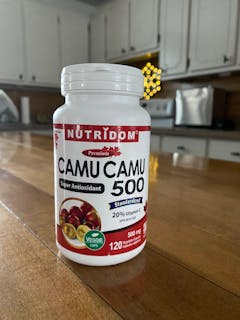Pure Berberine
Nutridom Berberine delivers 500mg of high-purity Berberine HCL (97%) per capsule, a plant-based alkaloid traditionally used to support metabolic and cardiovascular wellness.
Glucose Metabolism
Berberine has been studied for its ability to help support healthy glucose metabolism, assisting the body in maintaining balanced energy levels throughout the day.
Cardiovascular Wellness
Along with glucose support, berberine contributes to healthy cholesterol management and circulation, making it a valuable addition to your heart health routine.
Pure Berberine
Nutridom Berberine delivers 500mg of high-purity Berberine HCL (97%) per capsule, a plant-based alkaloid traditionally used to support metabolic and cardiovascular wellness.
Glucose Metabolism
Berberine has been studied for its ability to help support healthy glucose metabolism, assisting the body in maintaining balanced energy levels throughout the day.
Cardiovascular Wellness
Along with glucose support, berberine contributes to healthy cholesterol management and circulation, making it a valuable addition to your heart health routine.

Canadian-Made

Lab-Tested

Health Canada Approved











